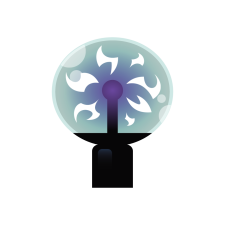Install Steam
login
|
language
简体中文 (Simplified Chinese)
繁體中文 (Traditional Chinese)
日本語 (Japanese)
한국어 (Korean)
ไทย (Thai)
Български (Bulgarian)
Čeština (Czech)
Dansk (Danish)
Deutsch (German)
Español - España (Spanish - Spain)
Español - Latinoamérica (Spanish - Latin America)
Ελληνικά (Greek)
Français (French)
Italiano (Italian)
Bahasa Indonesia (Indonesian)
Magyar (Hungarian)
Nederlands (Dutch)
Norsk (Norwegian)
Polski (Polish)
Português (Portuguese - Portugal)
Português - Brasil (Portuguese - Brazil)
Română (Romanian)
Русский (Russian)
Suomi (Finnish)
Svenska (Swedish)
Türkçe (Turkish)
Tiếng Việt (Vietnamese)
Українська (Ukrainian)
Report a translation problem























Even without the crit, 9 damage for a normal weapon is not bad. Other ways of playing are viable but if you get the crit passives it is very stable/consistent.
Halberds are a weapon that could be a lot better than it is. If monsters made more use of shields, if there were encounters of sight monsters at once, there would be more use of them.
Getting a card draw on a crit is fun, but most the time you'd not get one. Have fun, but I'd be wary of going after risky build choices.
In a crit build (i.e. getting the two crit passives which is not terribly hard to do if you save your 2FP for reroll) these are great damage + card draw engines to boot. Even if you only end up with the "weapons do 2 more damage" passive, it's still quite good.
Also good to point out that you get to choose the Heroic skills at levels 5, 10, 15, 20. They don't really talk about this.
Out of the gate, it does precisely nothing.
As a matter of practice, getting the Magician or Hanged Man is going to be superior with most builds.
There are indeed some cards that make you pay with next turn draws, so bear in mind that something that negates not drawing 1 card every 3rd round is still marginal. Effects that stack and leave you not drawing a card at all are very powerful. Essentially, by picking the World, you are committing to drafting cards that cost you next card draws.